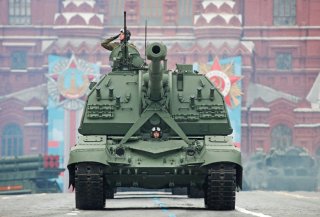A Discussion with Mike Pompeo: The Russia-Ukraine Crisis and the Future of U.S. Nuclear Strategy
America faces tough choices about its nuclear force posture and deterrence strategy.
The People’s Republic of China is modernizing and expanding its nuclear weapons while showing off new hypersonic capabilities. Russia is updating and upgrading its own arsenal, while North Korea and Iran pose growing threats. To deal with these critical challenges, America faces tough choices about its nuclear force posture and deterrence strategy. Few people are better qualified to address this important issue than America’s seventieth Secretary of State, Mike Pompeo.
Secretary Pompeo recently published an article in The National Interest on this subject, and he joined the Center for the National Interest to address the strategic challenges facing the United States.
Pompeo previously served as Director of the Central Intelligence Agency from January 2017 to April 2018. Prior to joining the Trump administration, Pompeo was serving in his fourth term as congressman from Kansas’ 4th District. He served on the House Intelligence Committee, as well as the Energy and Commerce Committee and House Select Benghazi Committee. Prior to his service in Congress, Pompeo founded Thayer Aerospace, where he served as CEO for more than a decade. He later became President of Sentry International, an oilfield equipment manufacturing, distribution, and service company. Pompeo graduated first in his class at the United States Military Academy at West Point in 1986 and served as a cavalry officer patrolling the Iron Curtain before the fall of the Berlin Wall. He also served with the 2nd Squadron, 7th Cavalry in the US Army’s Fourth Infantry Division. After leaving active duty, Pompeo graduated from Harvard Law School, having been an editor of the Harvard Law Review.
Harry J. Kazianis, Senior Director at the Center for the National Interest and Executive Editor of The National Interest, moderated the discussion.
Image: Reuters.

